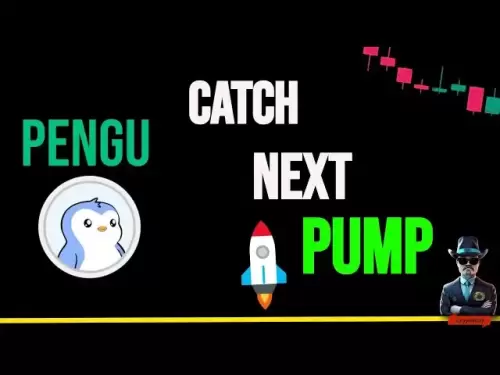-
 Bitcoin
Bitcoin $106,782.3966
-0.72% -
 Ethereum
Ethereum $2,406.7764
-1.16% -
 Tether USDt
Tether USDt $1.0005
0.02% -
 XRP
XRP $2.0918
-1.53% -
 BNB
BNB $644.5785
-0.17% -
 Solana
Solana $141.0925
-0.69% -
 USDC
USDC $1.0000
0.02% -
 TRON
TRON $0.2721
0.18% -
 Dogecoin
Dogecoin $0.1585
-1.26% -
 Cardano
Cardano $0.5497
-1.14% -
 Hyperliquid
Hyperliquid $35.8493
-1.58% -
 Bitcoin Cash
Bitcoin Cash $502.3089
2.20% -
 Sui
Sui $2.7092
3.87% -
 Chainlink
Chainlink $12.8551
-1.85% -
 UNUS SED LEO
UNUS SED LEO $9.0548
0.53% -
 Stellar
Stellar $0.2344
-0.85% -
 Avalanche
Avalanche $17.2676
-0.23% -
 Toncoin
Toncoin $2.8282
0.56% -
 Shiba Inu
Shiba Inu $0.0...01113
-1.14% -
 Litecoin
Litecoin $83.9593
-0.93% -
 Hedera
Hedera $0.1447
0.82% -
 Monero
Monero $306.9022
-2.07% -
 Bitget Token
Bitget Token $4.6358
3.42% -
 Dai
Dai $0.9999
0.01% -
 Ethena USDe
Ethena USDe $1.0001
0.02% -
 Polkadot
Polkadot $3.3211
0.06% -
 Uniswap
Uniswap $6.8775
0.75% -
 Pi
Pi $0.5664
-0.27% -
 Aave
Aave $256.0055
1.28% -
 Pepe
Pepe $0.0...09013
-3.24%
How to manage NFT assets in Trust Wallet?
Trust Wallet supports viewing NFTs on chains like Ethereum and Polygon, but lacks advanced features like selling or staking, requiring external marketplaces or dApps for full interaction.
Mar 30, 2025 at 10:43 pm
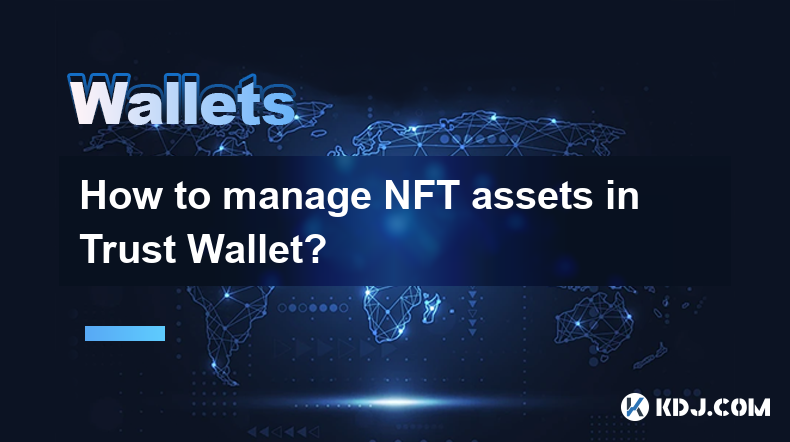
Understanding NFT Management within Trust Wallet
Trust Wallet, a popular mobile cryptocurrency wallet, offers native support for NFTs, allowing users to store, view, and in some cases, interact with their non-fungible tokens. However, the functionality is somewhat limited compared to dedicated NFT marketplaces or wallets. Understanding these limitations is key to effective NFT asset management within Trust Wallet. This guide will detail how to manage your NFTs within the application, addressing potential challenges and best practices.
Adding Your NFT Collection to Trust Wallet
The first step is to ensure your NFT is on a supported blockchain. Trust Wallet supports several major blockchains like Ethereum, Binance Smart Chain, Polygon, and others. If your NFT resides on an unsupported chain, you won't be able to view it in the wallet.
- Check Blockchain Compatibility: Verify your NFT's blockchain compatibility with Trust Wallet before proceeding.
- Import Your Wallet: If you haven't already, import your wallet containing your NFTs into Trust Wallet. This usually involves using your seed phrase or private key. Never share your seed phrase or private key with anyone.
- Refresh Your Wallet: After importing or connecting your wallet, refresh the Trust Wallet application to ensure it updates and displays your NFTs. This is crucial for seeing newly acquired assets.
Viewing Your NFTs in Trust Wallet
Once your wallet is set up correctly, your NFTs should appear in the "Collectibles" section of your Trust Wallet. The display will vary depending on the NFT and its metadata. Some NFTs might show a preview image, while others might only display the contract address.
- Navigate to the Collectibles Tab: Find the dedicated tab within Trust Wallet designed for viewing your NFTs. The exact location might vary slightly depending on your Trust Wallet version.
- Explore NFT Details: Click on an individual NFT to view more details, such as its name, description, and the blockchain it's on. This information is usually pulled from the NFT's metadata.
- Limited Interaction: Keep in mind that Trust Wallet's interaction with NFTs is limited. You can view them, but advanced features like listing for sale or staking might require using a dedicated marketplace or dApp.
Troubleshooting Common Issues
Sometimes, NFTs might not appear immediately or correctly in Trust Wallet. Here are some troubleshooting steps:
- Check Network Connection: A stable internet connection is essential for fetching NFT data. Try connecting to a different network or restarting your device.
- Update Trust Wallet: Ensure you have the latest version of Trust Wallet installed. Updates often include bug fixes and improved compatibility.
- Verify Contract Address: Double-check that the contract address of your NFT is correct and matches the information provided by the marketplace where you acquired it. An incorrect address will prevent the NFT from appearing.
- Contact Support: If the problem persists, contact Trust Wallet support for assistance. They might be able to diagnose the issue and provide solutions.
Beyond Viewing: Interacting with Your NFTs
While Trust Wallet excels at storing NFTs, its interactive capabilities are limited. Many actions, such as selling, trading, or participating in NFT projects requiring specific interactions, require using a compatible decentralized application (dApp) or marketplace.
- Using DApps: Certain dApps might integrate with Trust Wallet, allowing you to interact with your NFTs directly through the wallet. However, always exercise caution and verify the legitimacy of any dApp before connecting your wallet.
- Marketplace Integration: Many popular NFT marketplaces offer direct integration with Trust Wallet, allowing you to manage and trade your NFTs within their platform. This is often a more user-friendly approach than using dApps directly.
- Security Precautions: When using dApps or connecting to marketplaces, prioritize security. Only connect to trusted and verified platforms to minimize the risk of scams or hacks.
Security Best Practices for NFT Management in Trust Wallet
Security is paramount when managing cryptocurrency and NFTs. Follow these best practices:
- Strong Password: Use a strong and unique password for your Trust Wallet account. Avoid reusing passwords across different platforms.
- Seed Phrase Security: Never share your seed phrase with anyone. Store it securely offline, ideally in a physical location inaccessible to others.
- Device Security: Keep your mobile device secure with a strong passcode or biometric authentication. Avoid jailbreaking or rooting your device, as this compromises security.
- Software Updates: Regularly update your Trust Wallet application and your mobile operating system to benefit from the latest security patches.
- Beware of Phishing: Be wary of phishing attempts, which might try to trick you into revealing your seed phrase or private keys. Never click on suspicious links or download untrusted applications.
Frequently Asked Questions
Q: Can I sell my NFTs directly from Trust Wallet?
A: No, Trust Wallet primarily focuses on storage and viewing. Selling usually requires using a compatible NFT marketplace or dApp.
Q: Does Trust Wallet support all NFT blockchains?
A: No, Trust Wallet supports a selection of popular blockchains. Check their website for the most up-to-date list of supported chains. If your NFT is on an unsupported blockchain, you won't be able to view it in Trust Wallet.
Q: What if my NFT doesn't show up in Trust Wallet?
A: First, verify your NFT's blockchain compatibility. Then, check your network connection, update Trust Wallet, and ensure the contract address is correct. If problems persist, contact Trust Wallet support.
Q: Is Trust Wallet safe for storing my NFTs?
A: Trust Wallet is a reputable wallet, but like any digital wallet, it’s crucial to follow best security practices, including using a strong password, protecting your seed phrase, and being vigilant against phishing attempts.
Q: Can I stake my NFTs within Trust Wallet?
A: Staking functionality depends on the specific NFT and its associated project. Trust Wallet doesn't offer universal staking capabilities; you might need to use a compatible dApp or platform.
Disclaimer:info@kdj.com
The information provided is not trading advice. kdj.com does not assume any responsibility for any investments made based on the information provided in this article. Cryptocurrencies are highly volatile and it is highly recommended that you invest with caution after thorough research!
If you believe that the content used on this website infringes your copyright, please contact us immediately (info@kdj.com) and we will delete it promptly.
- Smart Investors Navigate the AI Token Frenzy: Bitcoin Switch and Beyond
- 2025-06-28 12:30:12
- Crypto in 2025: How Web3 AI is Poised to Dominate
- 2025-06-28 12:30:12
- Solana's Support Level Holds as MACD Crossover Hints at Potential Bullish Reversal
- 2025-06-28 12:50:12
- Altcoin Growth Hacking: Is MAGACOIN FINANCE Your Early Entry Ticket?
- 2025-06-28 13:10:12
- Crypto, Invest, July: What's Hot in the Digital Coin World?
- 2025-06-28 13:30:12
- Anchorage, Stablecoins, and Delistings: A New York Minute on Crypto Drama
- 2025-06-28 13:30:12
Related knowledge

How to stake cryptocurrencies on Coinbase? Benefits and risks
Jun 27,2025 at 06:36pm
Understanding Cryptocurrency Staking on CoinbaseStaking cryptocurrencies involves locking up digital assets to support the operations of a blockchain network, typically in return for rewards. Coinbase, one of the most popular cryptocurrency exchanges globally, offers staking services for several proof-of-stake (PoS) coins. Users can stake their holdings...

How to contact Coinbase customer service? Support channels and response times
Jun 28,2025 at 01:29pm
Contacting Coinbase Customer Service: Support Channels and Response TimesIf you're a user of Coinbase, reaching their customer service team may become necessary for various reasons, such as account verification issues, transaction disputes, or technical difficulties. Understanding the different support channels available and what to expect in terms of r...
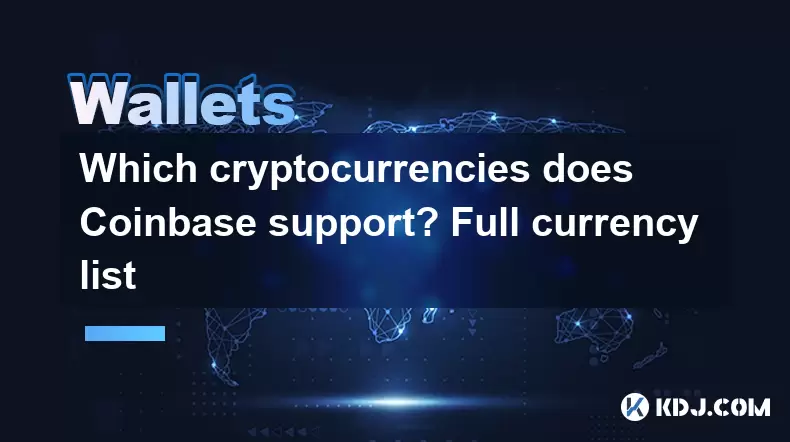
Which cryptocurrencies does Coinbase support? Full currency list
Jun 28,2025 at 08:36am
Overview of Cryptocurrencies Supported by CoinbaseCoinbase is one of the most popular and trusted cryptocurrency exchanges globally. It provides users with a platform to buy, sell, trade, and store various digital assets. As of the latest updates, Coinbase supports over 200 cryptocurrencies, including major ones like Bitcoin (BTC), Ethereum (ETH), and L...
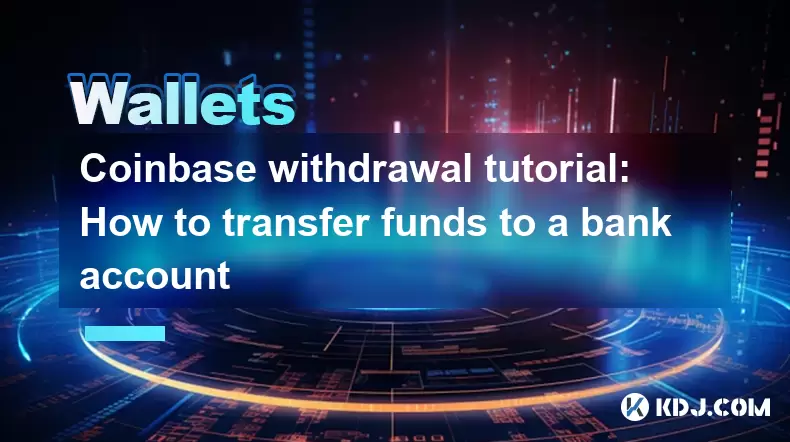
Coinbase withdrawal tutorial: How to transfer funds to a bank account
Jun 28,2025 at 02:35am
Understanding Coinbase WithdrawalsCoinbase is one of the most widely used cryptocurrency platforms, allowing users to buy, sell, and store digital assets. Once you've successfully traded or held your crypto on Coinbase, the next logical step may be to withdraw funds to a bank account. This process involves converting your cryptocurrency into fiat curren...
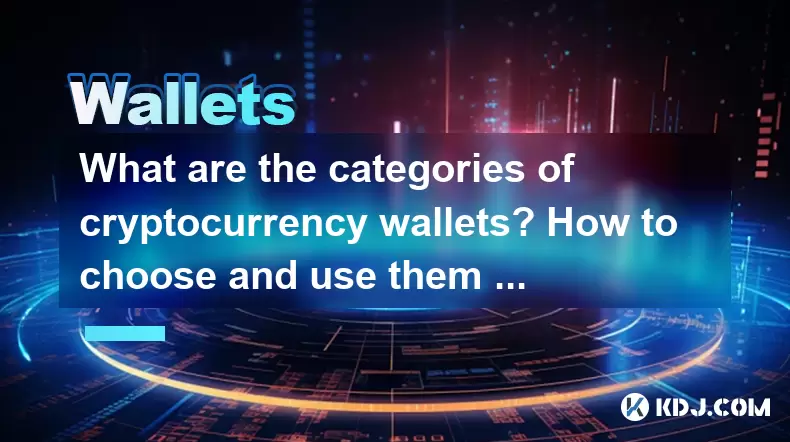
What are the categories of cryptocurrency wallets? How to choose and use them safely?
Jun 21,2025 at 10:42pm
Understanding Cryptocurrency WalletsCryptocurrency wallets are essential tools for anyone involved in the digital asset ecosystem. They allow users to store, send, and receive cryptocurrencies securely. Unlike traditional wallets that hold physical money, crypto wallets manage cryptographic keys—private and public—which interact with blockchain networks...
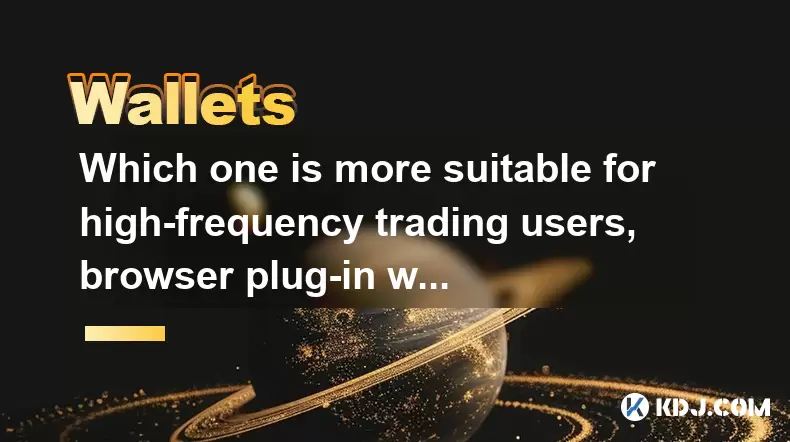
Which one is more suitable for high-frequency trading users, browser plug-in wallets or independent application wallets?
Jun 23,2025 at 08:22am
Understanding the Role of Wallets in High-Frequency TradingFor high-frequency trading (HFT) users in the cryptocurrency market, wallet selection is critical due to the need for speed, security, and seamless integration with trading platforms. HFT involves executing a large number of trades within seconds or even milliseconds, which demands a wallet that...

How to stake cryptocurrencies on Coinbase? Benefits and risks
Jun 27,2025 at 06:36pm
Understanding Cryptocurrency Staking on CoinbaseStaking cryptocurrencies involves locking up digital assets to support the operations of a blockchain network, typically in return for rewards. Coinbase, one of the most popular cryptocurrency exchanges globally, offers staking services for several proof-of-stake (PoS) coins. Users can stake their holdings...

How to contact Coinbase customer service? Support channels and response times
Jun 28,2025 at 01:29pm
Contacting Coinbase Customer Service: Support Channels and Response TimesIf you're a user of Coinbase, reaching their customer service team may become necessary for various reasons, such as account verification issues, transaction disputes, or technical difficulties. Understanding the different support channels available and what to expect in terms of r...

Which cryptocurrencies does Coinbase support? Full currency list
Jun 28,2025 at 08:36am
Overview of Cryptocurrencies Supported by CoinbaseCoinbase is one of the most popular and trusted cryptocurrency exchanges globally. It provides users with a platform to buy, sell, trade, and store various digital assets. As of the latest updates, Coinbase supports over 200 cryptocurrencies, including major ones like Bitcoin (BTC), Ethereum (ETH), and L...

Coinbase withdrawal tutorial: How to transfer funds to a bank account
Jun 28,2025 at 02:35am
Understanding Coinbase WithdrawalsCoinbase is one of the most widely used cryptocurrency platforms, allowing users to buy, sell, and store digital assets. Once you've successfully traded or held your crypto on Coinbase, the next logical step may be to withdraw funds to a bank account. This process involves converting your cryptocurrency into fiat curren...

What are the categories of cryptocurrency wallets? How to choose and use them safely?
Jun 21,2025 at 10:42pm
Understanding Cryptocurrency WalletsCryptocurrency wallets are essential tools for anyone involved in the digital asset ecosystem. They allow users to store, send, and receive cryptocurrencies securely. Unlike traditional wallets that hold physical money, crypto wallets manage cryptographic keys—private and public—which interact with blockchain networks...

Which one is more suitable for high-frequency trading users, browser plug-in wallets or independent application wallets?
Jun 23,2025 at 08:22am
Understanding the Role of Wallets in High-Frequency TradingFor high-frequency trading (HFT) users in the cryptocurrency market, wallet selection is critical due to the need for speed, security, and seamless integration with trading platforms. HFT involves executing a large number of trades within seconds or even milliseconds, which demands a wallet that...
See all articles





















